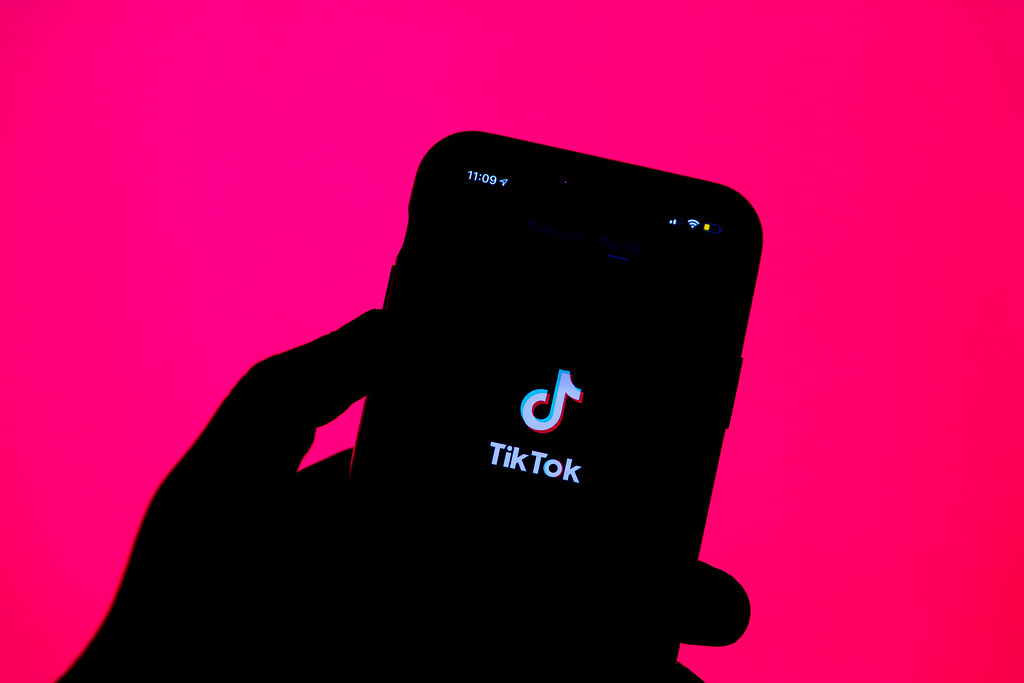On April 24, 2024, President Joe Biden signed a bill that could ban TikTok from the United States.
Since the law has gone into effect, the Chinese-owned tech company, ByteDance, has 8 months to sell the app to an American-based company or face a nationwide ban.
If ByteDance fails to find a buyer, the government will require Apple and Google to remove TikTok from their app stores. Users that already have the app downloaded will still have access to it. However, they will not be able to receive updates and bug fixes; they could be subject to data breaches.
Due to the rising tensions between the U.S. and China, the U.S. government believes that the Chinese Communist Party can use its ties with the Chinese-based company, ByteDance, to gather personal information from the 170 million users located in the United States. The government also fears that China could use this opportunity to manipulate content shown in the U.S.
The Chinese Communist Party manipulating the media for their own interest is not a farfetched idea. The Chinese government has had a rough history with spreading propaganda, misinformation, and concealing parts of history.
Take, for example, the 1989 Tiananmen Square protests and massacre. Chinese students protested for democratic government reform. Their refusal to disperse from Tiananmen Square was met with a horrific military crackdown where students were shot and crushed by tanks on June 4.
Most journalists had their photos taken from them and media groups were silenced from talking about what happened that day. Two photographers, Liu Jian and Jeff Widener, managed to hide away photos documenting the event. Jian managed to save 2,000 photos of people protesting within Tiananmen Square and the build up that led to the massacre that ended it. Widener produced the historic image of a man confronting a row of tanks making their way towards the protest.
The Chinese Communist Party’s power over their media companies allows it to conceal what happened in Tiananmen Square, which cannot be found using Chinese internet services, hiding the brutal acts committed by the Chinese government.
A more recent example of the Chinese Communist Party using their influence on social media are the Hong Kong Protests of 2019. The Chinese government attempted to gain more control over Hong Kong by trying to pass an extradition bill. If signed into law, it would have allowed China to extradite people who broke Chinese laws. The citizens of Hong Kong worried that it would allow China to punish people who criticized the Communist Party.
In order to control the narrative and gain support from their people, China began using every censorship tool in their belt to divert attention from the protesters. They blocked tags on social media like “Hong Kong” or “Hong Kong government” and even more specific tags like “1.03 million,” which is the number of protesters that participated on June 9, 2019. Chinese news stations covered the supporters of the extradition bill, while ignoring those who protested it. The media then began portraying the protesters as “evil and radical extremists that are against their own country.”
The Chinese government also hired internet commentators from the “50 cent party,” a group that goes into social media or internet sites and posts large numbers of fabricated social media comments to manipulate the public opinion.
The security threats that stem out of how much power the Communist Party has over its Chinese-owned businesses has concerned the U.S. government. In 2022, they banned the app from all government issued devices. The next year, Canada followed the example of the U.S. by banning TikTok from all government devices as well.
In 2021, India became the first country that banned TikTok nationwide. The rise of TikTok and the security threats that it presented caused their government to pass legislation that would not only ban TikTok, but various other China based apps as well. It does not help that China and India have been in conflict for 58 years.

By the time that the legislation passed and the app was banned nationwide, TikTok accumulated over 200 million users. These creators and casual swipers were left stranded, wondering where else to go. While Indian companies tried to fill in the hole that the major video sharing app left, U.S. companies managed to thrive under their competition’s absence. YouTube and Instagram managed to absorb many of the users left by TikTok.
The domination over social media by apps like Instagram, Facebook, X, and YouTube is starting to seem a little troublesome as well. These apps have already monopolized the market, making it hard for others to climb in the ranks. The ban of TikTok will bolster their size in numbers and strengthen their power over the industry.
These U.S. companies may not sell users’ personal information like China has been accused of doing, but they do use personal data to target ads that will best match a particular consumer. In turn, companies pay social media apps like Facebook for advertising their products. In 2023, Meta alone made over 131 billion U.S. dollars in ad revenue. With TikTok gone, their competition will have the opportunity to gain even more profit from those who switch over to their platform. Even now, a noticeable amount of creators are beginning to advertise other social media apps.
Since 2022, TikTok has routed user data through the Texas based company, Oracle, to address security concerns. However, Oracle benefits from them not being banned. Oracle and TikTok have a $1 billion contract to store data in their cloud. The profit that they gain from having TikTok as a customer allows them to compete against companies like Google and Amazon, who dominate the cloud market. Though they say they are not for or against the ban, Oracle definitely benefits from having TikTok as a client.
Instead of banning TikTok and limiting where people are able to voice their opinions, the government should look into regulating the ability to gather personal data from consumers. The TikTok board of directors includes five members, three of which are American. Arthur Dantchik from Susquehanna International Group, Bill Ford from General Atlantic, and Philippe Laffont from Coatue Management are all based in the U.S.
Though the Bill has been made into law, ByteDance has not given up and has made it clear that they will fight to stay in charge and available for the American people. They are confident that they will win the court challenges ahead. As of May 7, 2024, ByteDance has filed a lawsuit against the United States, claiming that the ban goes against the First Amendment of the Constitution.
Michael Bukowski, a CLC student who doesn’t like TikTok, said “it’s pivotal that the government does not get involved in our social media,” and that it is “a slippery slope that infringes on our freedom of speech.”
“U.S. companies are already doing the same thing as China,” Bukowski said. “The only thing is that they’re a foreign adversary.”







